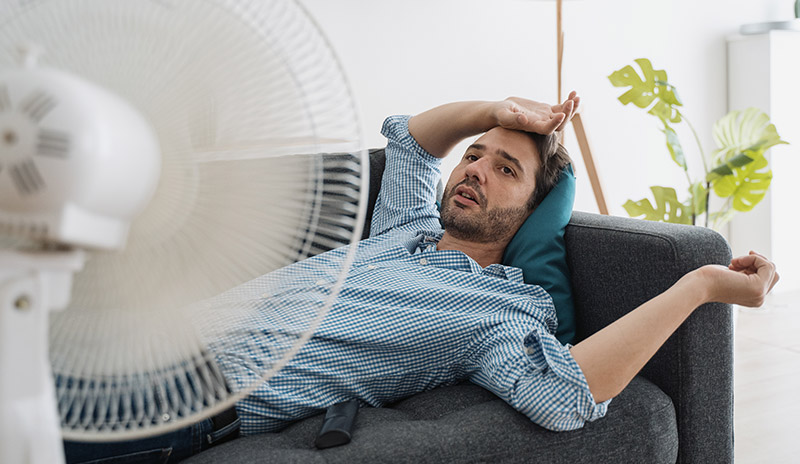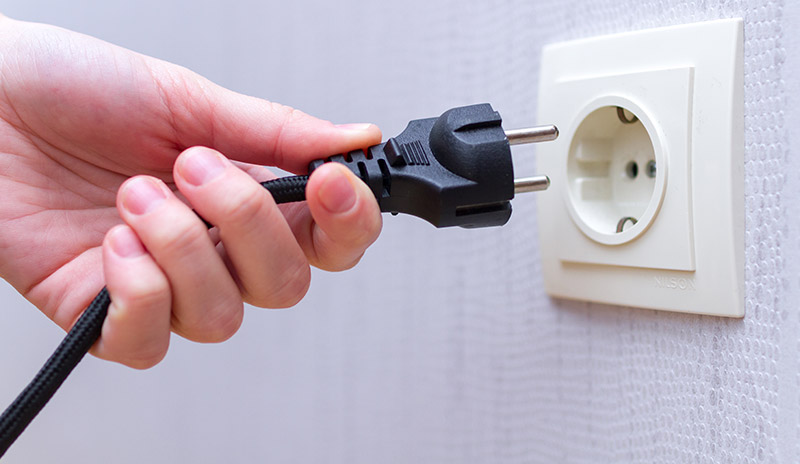The pressure is on! It’s time to devise a strategy for conserving energy and avoiding soaring electricity costs this summer. Aside from being an environmental disaster, these hot summer days can also be a financial disaster. You spend most of your energy budget on heating and cooling your house. With your air conditioner working 24 hours a day, seven days a week, you may expect some of your highest power costs of the year.
We’ve produced a list of our top nine summer energy-saving ideas. Our objective is to give your AC a much-needed break while keeping you cool. We share our best tips for keeping your house cool in this heat while avoiding substantial utility costs.
1) Befriend Fans:
Ceiling fans, tower fans, and desk fans might help you feel cooler and are a minor investment that may assist you in saving money on electricity. The fan blows air across your skin, keeping you cool, so you don’t have to use your air conditioner all the time. It will allow you to raise your temperature above summer settings without becoming uncomfortable gradually. By using fans to assist cool your home, you may raise the thermostat setting by 4 degrees without sacrificing comfort. Keep in mind to switch off the fans when you leave the room.

2) Chill Your Fridge:
Your refrigerator and freezer are vital for keeping your lemonade and popsicles cool throughout the summer. Keeping your refrigerator properly maintained can help you save money on energy costs. Set the refrigerator thermostat to 2 to 3 degrees Celcius and the freezer thermostat to -15 to 0 degrees Celcius. Vacuum the coils and inspect the door seal. Make sure your refrigerator is always full of food or beverages, so it has less air space to chill.
3) Unplug Appliances When Not In Use:
Unplug your chargers, TV, computer, and other small devices when not in use to save your electronics from sucking up all of your summer energy. Even when it’s turned off, simply plugging it in creates a small amount of heat in the wires. Unplug any gadgets you’re not using to keep things cool. It’s not much per item, but when you sum up all the devices in your house, it may make a few degrees difference. It’s a simple method to save up to a couple of thousand rupees every year.

4) Organize Your Water Consumption:
Washing machines, clothes dryers, and dishwashers produce a significant amount of heat. Reduce this by just doing your laundry in cold water. To avoid overheating the appliances, only wash full loads of dishes and textiles. Avoid using your clothes dryer at all costs. Hang your damp items to dry after washing.
5) Check The Stars:
Look for Energy Star certified systems with excellent Seasonal Energy Efficiency Ratio and Energy Efficiency Ratio ratings when replacing your air conditioner. They will be 15% more efficient than other models. Upgrade your appliances to Energy Star models as well. It is imperative that you schedule seasonal maintenance for your air conditioner and other equipment, at the very least, to make sure they are operating at their best.
6) LED Light Bulbs Are The Way To Go:
If you’re still using the old light bulbs, it’s time to upgrade to LEDs. Incandescent bulbs are pretty inefficient. Only approximately 10 to 15% of the power they utilize is converted into light; the rest is wasted heat. LED lights are the most energy-efficient lighting alternative available today. They consume 75% less energy, last 25 times longer, and are substantially cooler to operate than standard incandescent lights. They are a bit more expensive at first, but they quickly pay for themselves in energy savings.

7) Change Your Air Filter:
Filters that are clogged or unclean restrict average circulation and limit your air conditioner’s capacity to absorb heat. Replacing a filthy filter with a clean one can reduce your air conditioner’s energy consumption by up to 15%. A clogged filter causes the air to travel more slowly, making your AC system work more than it has to. It also helps avoid dust accumulation in your system, which may lead to worse problems, such as your air conditioner breaking down. It is proposed that you change your air filter every 60 days. Your utility bill and air conditioner will thank you.

8) Close the Curtains:
Close your curtains to keep the sun’s greenhouse impact at bay during the day. Southern and western-facing walls receive the most heat from the sun; therefore, invest in decent curtains or shades for these walls’ windows and keep them closed. North-facing windows let in very uniform natural light, resulting in minimal glare and nearly no undesirable summer heat gain. You may leave these curtains open to let in natural light without overheating your home.

9) Flawed Appliances:
If you don’t want your monthly energy costs to soar high, you should check to see if your home’s equipment is in excellent working order. Washing machines, tumble dryers, and dishwashers are examples of appliances that use a lot of energy. If any of these appliances have an electrical fault, it may result in excessive electricity consumption, resulting in excessive energy bills. Consequently, it is essential to perform adequate maintenance on some of these devices to avoid these pricey expenditures or even malfunctioning.
We occasionally receive power bills that leave us wondering what went wrong or why the amounts are so high. It is a question that you will eventually ask yourself: “Why is my power bill so high?” Hence, do not wait for a heatwave to arrive because saving energy should not be a summertime hobby. You should apply many of these tips all year round to save money. Developing innovative energy practices will help you decrease waste, enhance efficiency, and save money on your energy bill. This list of energy-saving suggestions will reduce your energy expenditures this summer. Then put your funds towards a weekend getaway in the monsoon!

Can you imagine buying a piece of land or your dream home only to realise later that you do not a legal proof of ownership? This is where a title deed comes to the rescue! It is not just a p...

Your hall is one of the most important spaces in your home. It’s where you relax, spend time with family, and welcome guests. But does your hall feel warm and inviting? Or does it need a l...
Comments